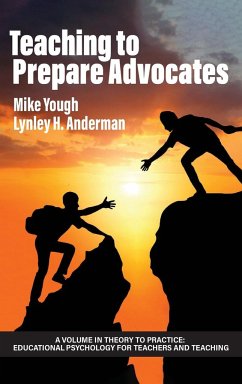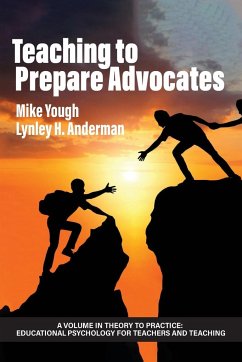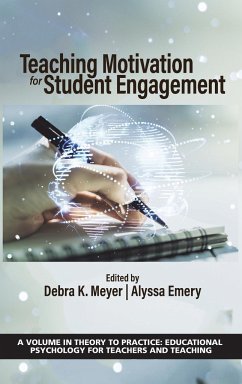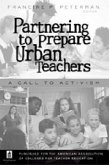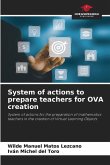This book is the fourth volume in the six-part series Theory to Practice: Educational Psychology for Teachers and Teaching. The objective of most other volumes in this series is to help instructors apply and model fundamental principles of learning, assessment, motivation, and development in preparing their students for the diverse, multidimensional, uncertain, and socially-embedded classrooms in which these future educators will teach. This volume is a strong compliment to others in the series as it prepares readers to be better positioned to advocate for principles of psychology in their programs and departments, and to prepare preservice teachers to do likewise in the K-12 classrooms they will soon guide. Even more, this volume will help instructors in shaping pre-service teachers to be stronger advocates for their own students. This volume is organized around two themes: (1) Advocating for principles and practices of educational psychology, and (2) advocating for students. These themes go hand-in-hand. While advocating for educational psychology principles and evidence-based practices in their schools, teachers also are called upon to advocate for and empower historically marginalized groups of students. Topics in Part I include development of intercultural competency, implementation of professional learning communities, culturalizing the curriculum, journalistic learning, incorporation of inquiry learning, and universal design. Topics in Part II include supporting student self-advocacy, creating an allyship with LGBTQ+ students, advocating for victims of bullying, and supporting students with mental health needs.
Hinweis: Dieser Artikel kann nur an eine deutsche Lieferadresse ausgeliefert werden.
Hinweis: Dieser Artikel kann nur an eine deutsche Lieferadresse ausgeliefert werden.

